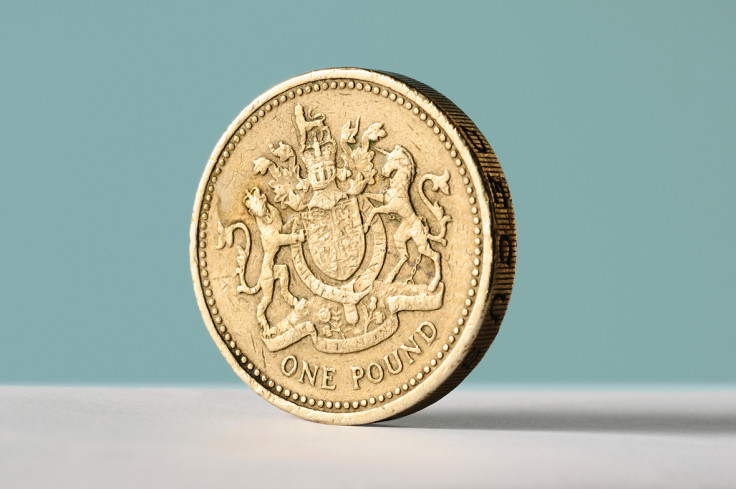FX Focus: Pound gains ground as public sector borrowing declines sharply
Euro remains on the front foot as investors expect Macron to secure French presidency next month.

The pound edged slightly higher on Tuesday (25 April), after figures showed Britain's public sector borrowing fell to the lowest since the financial crisis last month.
Shortly after the halfway mark in the session, sterling was 0.27% higher against the dollar, trading at $1.2827 and was broadly unchanged against the euro, exchanging hands at €1.1773. Last week, the pound surged sharply after Prime Minister Theresa May surprisingly called a snap general election for 8 June, but the momentum seems to have fizzled out since.
"Investors have also been making a more sober assessment of the situation as they know full well that in reality things might turn out differently post-election, as US investors are starting to find out with regards to Donald Trump," said Fawad Razaqzada, market analyst at Forex.com.
"Clearly, Brexit-related uncertainty will remain in place for a while yet. Still, in the short-term, the fact that the pound/dollar rate has managed to hold its own relatively well so far in the month cannot be ignored."
On the macroeconomic front, there was good news for the pound as a report from the Office for National Statistics showed that, excluding public sector banks, the UK borrowed £52bn in the 2016-17 financial year. The figure was marginally above the £51.7bn forecast in last month's budget, but a 28% year-on-year decline and marked the lowest level on record since the financial crisis, when it stood at £40.4bn.
However, analysts warned that that borrowing could soon increase again. "Higher inflation will also act as a drag on growth over the next year while boosting some benefit payments that are linked to prices," said PwC chief economist John Hawksworth.
"The improvement in the deficit could well be reversed in the coming financial year as the OBR predicted. So while the deficit is now approaching a more sustainable level, there will still be some tough choices ahead on tax and spending for the next government."
Elsewhere, the euro remained on the front foot, gaining 0.24% and 0.96% against the dollar and the yen respectively, to trade at $1.0894 and ¥120.44 respectively.
The common currency had surged to a five-month high against the dollar on Sunday, after it emerged Emmanuel Macron and Marine Le Pen made it through the first round of the French presidential elections.
The former, the market's preferred candidate, is the hot favourite to win the run-off with one poll putting him at 61% to 39% ahead of his rival.
HSBC chief currency strategist David Bloom said the results of the French elections could have a long-lasting and positive effect on the euro, which endured a turbulent year amid rising populism.
Bloom forecast the euro will trade at $1.20 by the end of 2017, a level it has not touched since 2015, although he admitted: "The market may not want to fully extract the political risk premium from the [euro] until the second round is complete on 7 May."
Having fallen against the pound and the euro, meanwhile, the dollar registered gains against most of its other rivals, rising 0.71% against the yen to ¥110.57. The greenback also rose 0.67% and 0.39% against its Canadian and Australian counterparts respectively, to trade at CAD$1.3591 and AUD$1.3279.
© Copyright IBTimes 2025. All rights reserved.






















